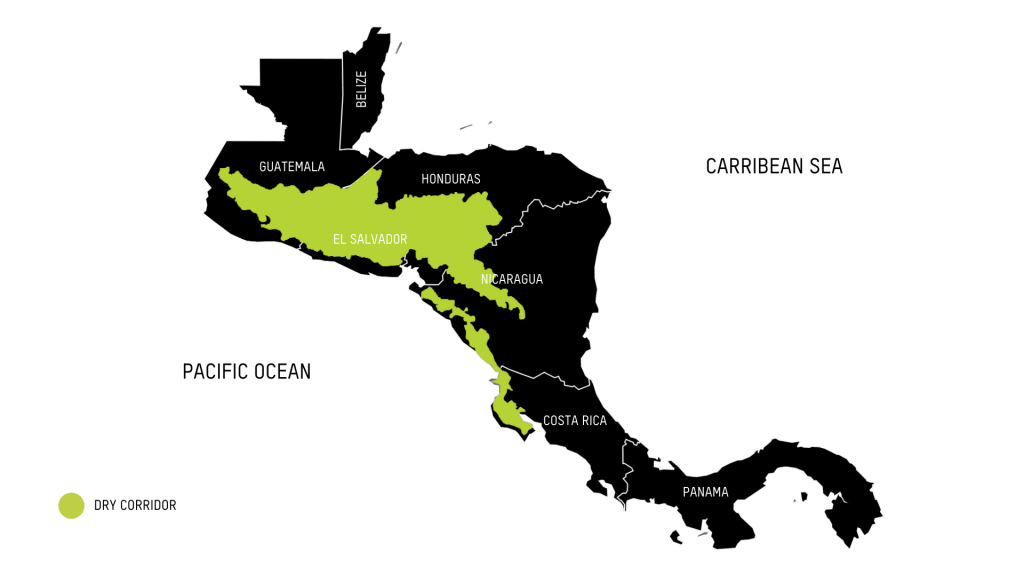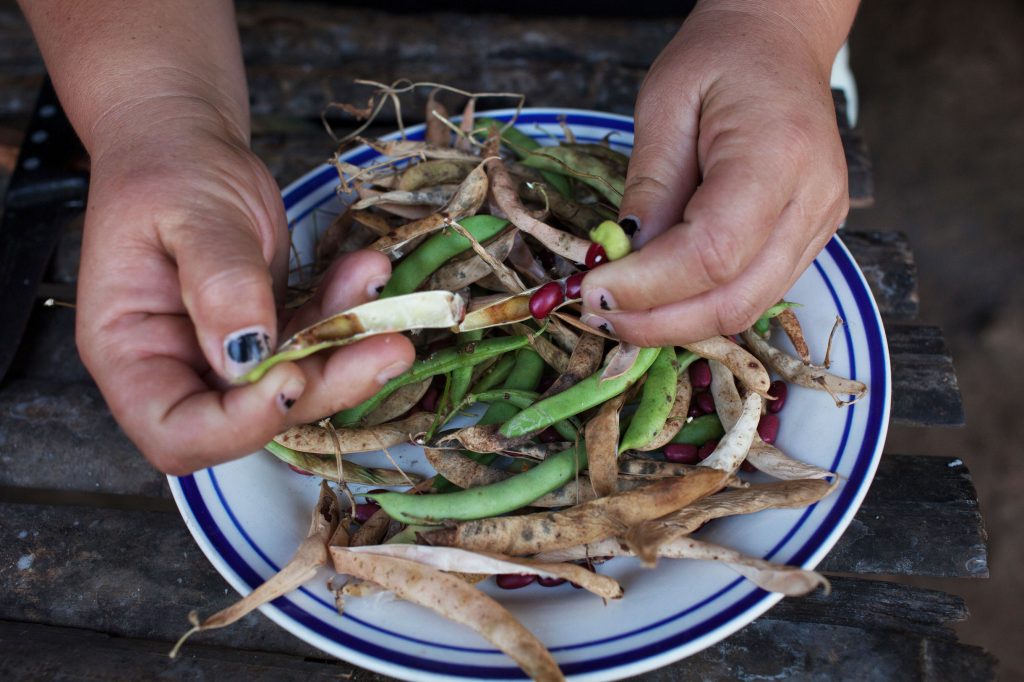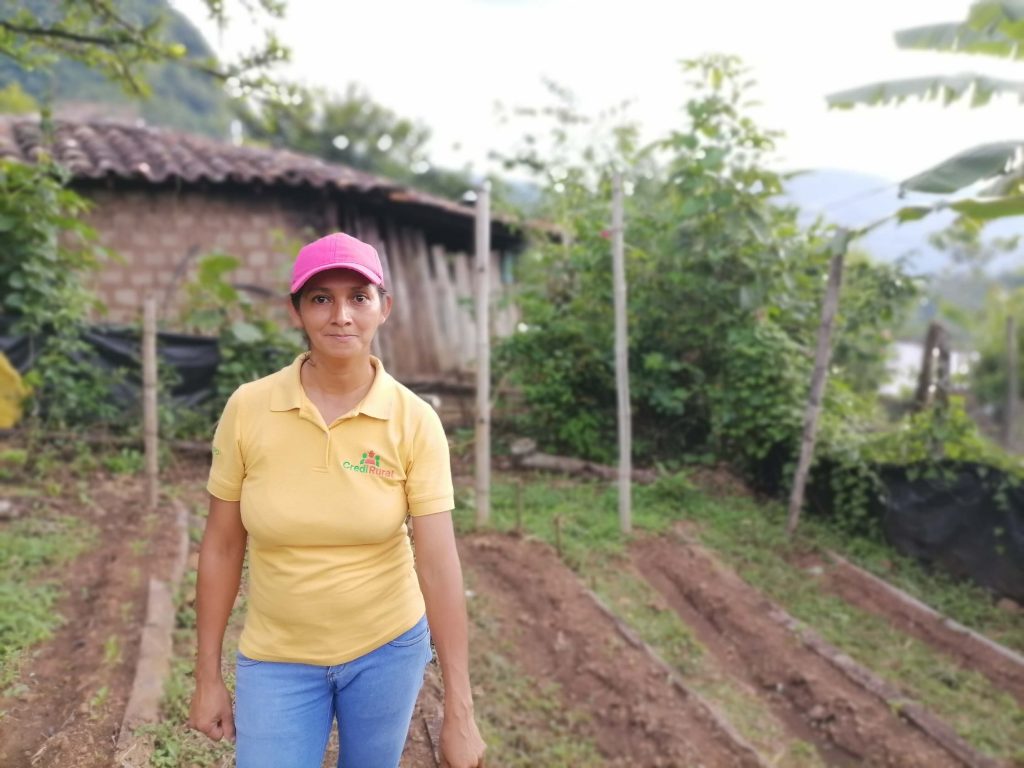As Global Leaders Talk Climate, Women in the Dry Corridor Are Working to Survive
On a daily basis Rosa Soriano weighs her options, but no matter what she decides, her kids will still be hungry.
“If we have a pound of rice, we use half for one meal and half for the other, because we have to be careful with our food. Otherwise, we will have nothing left to eat,” she explains. “We have had to assess what we have available. I think – if I don’t have enough for today, how am I going to make it through tomorrow if things stay the same?”
Rosa can attest that the impacts of climate change and other crises are not experienced equally. She and her family live in Tacuba, a community with the highest rates of extreme poverty and malnutrition in El Salvador. Rosa’s home is located in the Central American Dry Corridor, a broad swath of land running through El Salvador, Guatemala, Honduras and Nicaragua. Most families in the Dry Corridor depend on subsistence farming for their livelihoods, but failing crops brought on by severe droughts, extreme weather and other challenges like deforestation and land encroachment by mining operations have eroded the basis of their livelihoods, especially among the poorest households.

Climate change has affected 2.2 million people in the Dry Corridor, comprised of El Salvador, Guatemala, Honduras and Nicaragua.
While Central America is responsible for only 0.5 per cent of global greenhouse gas emissions, Rosa and others living in the Dry Corridor are heavily affected by the deepening poverty, hunger, and societal violence that have escalated in part due to climate change. This past year, the eventual rains offered no relief – Tropical Storm Amanda battered the region, followed by the intense power of hurricanes Eta and Iota. These storms destroyed crops, livestock, and homes throughout the Dry Corridor, pushing over 60 per cent of households in the region further into poverty and hunger.
Since then, Rosa had been eking out her family’s survival by working different jobs – cleaning houses, caring for other people’s children, and working in the fields. But when the pandemic hit, her situation became even more precarious. As lockdown measures and fears of contracting COVID-19 stopped her from finding work in town or as an agricultural labourer, Rosa saw her daily income disappear.
Although Rosa and other marginalized women like her contribute little to climate change, they are disproportionately vulnerable to its effects. Their ability to cope with crisis – whether climate or COVID-19 related – are limited by social and economic inequities that weigh the scales against them. For women, long-standing social biases translate into lower incomes, less opportunities for education and jobs, as well as an unequal burden of caring for children and elderly family members. Inadequate services like social assistance, public health and childcare add to their challenges. Even more vulnerable to crises are Indigenous women and others experiencing intersecting forms of discrimination based on race, ethnicity, (dis)ability and other factors.
In El Chilamo, El Salvador, Orbelina Guevara and her family have also been hit hard by climate change. In 2018, she watched as her bean and corn harvest shriveled, along with her savings when droughts destroyed 90 per cent of the crops in the area. And yet, Orbelina is feeling more optimistic since a local organization, Fundación Campo, offered training in sustainable agriculture to women in her community. Now, she plants drought-tolerant crops in her own garden, and has been able to save money, which has been critical to her family’s well-being during the pandemic.
While Orbelina’s experience speaks to the importance of helping women adapt to climate change, more needs to be done to overcome barriers that limit women’s resilience to climate change and crises.
What Needs to Change?
Gender-responsive climate actions take more than good intentions. Initiatives aimed at helping people adapt to climate change have more impact in reducing vulnerability when underlying inequalities are addressed.
This starts by recognizing the impacts of climate change not being experienced equally, and that developing countries need resources to develop initiatives that overcome underlying vulnerabilities as part of building climate resilience. To better understand these vulnerabilities, it is critical to engage local women and gender-diverse people, as well as women’s rights organizations, in project planning and delivery. It also requires governments to implement gender-transformative policies that work to tackle the root causes of inequality and poverty. This includes adopting policies that are aimed at recognizing, reducing and redistributing care work often shouldered by women, and creating economic opportunities for women as countries work to green their economies. It also requires equitable access to much needed funding to support these initiatives – because women like Rosa and Orbelina need better options for their families.
The Importance of Climate Finance
Under the UN Paris Agreement, developed countries committed to jointly contribute at least US$100 billion annually in order to assist developing countries with efforts to transition to a low-carbon, climate-resilient future. This includes funding for initiatives like sustainable agriculture and land-use programs that target women, indigenous people and youth in the Dry Corridor, and renewable energy projects that expand economic opportunities in rural communities.
For developing countries, climate finance is critical to building resiliency to climate-related risks as they work to recover from the pandemic.
Climate finance will be on the agenda when President Biden hosts the climate-focused Earth Day Summit on April 22. We’re calling on Canada to show leadership by paying its fair share of climate finance and directing support to initiatives that reduce women’s vulnerability to crises – because Rosa and her family’s future depend on it.
Anya Knechtel is Oxfam Canada’s policy specialist leading policy work on climate change and natural resources.



